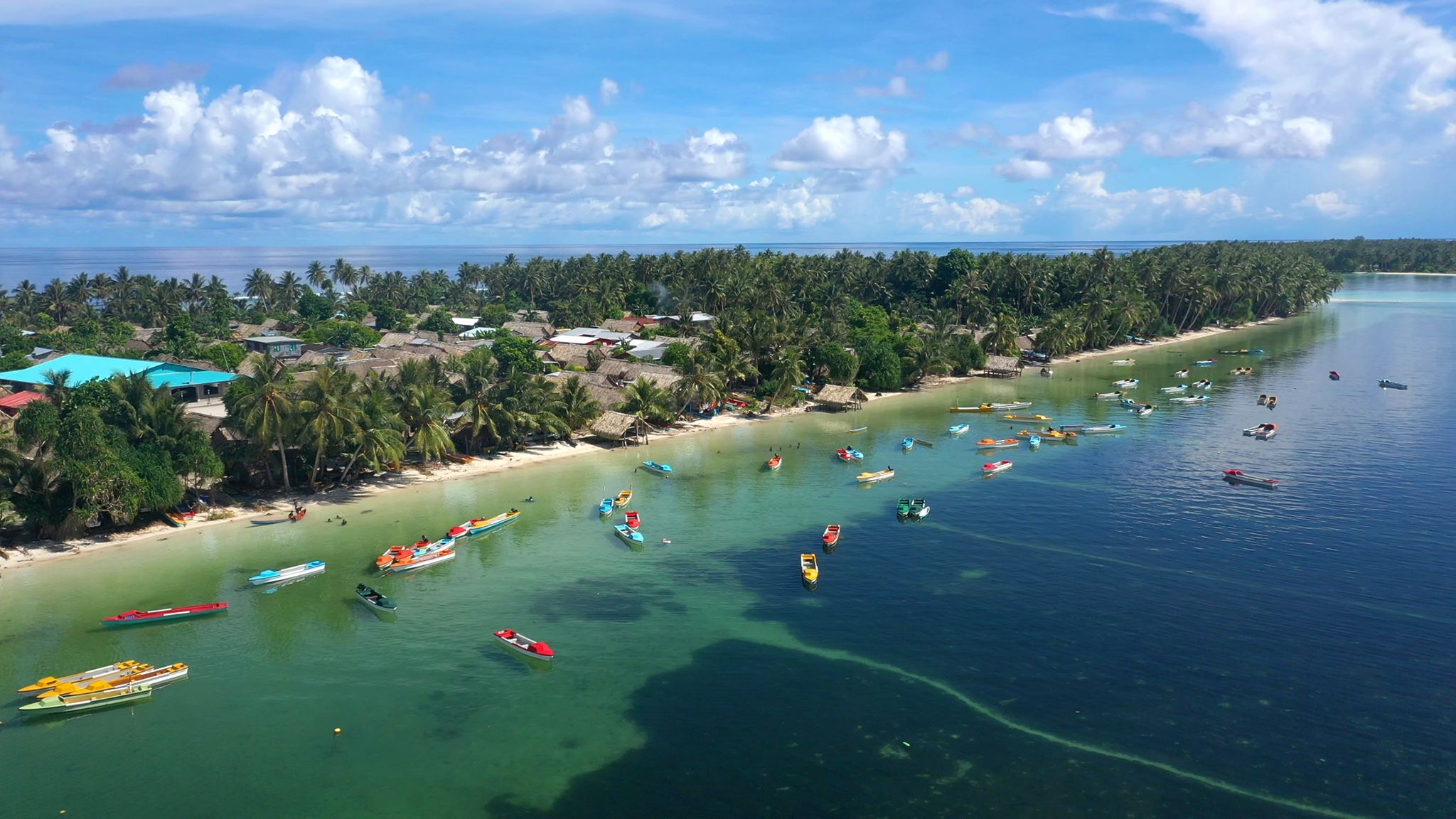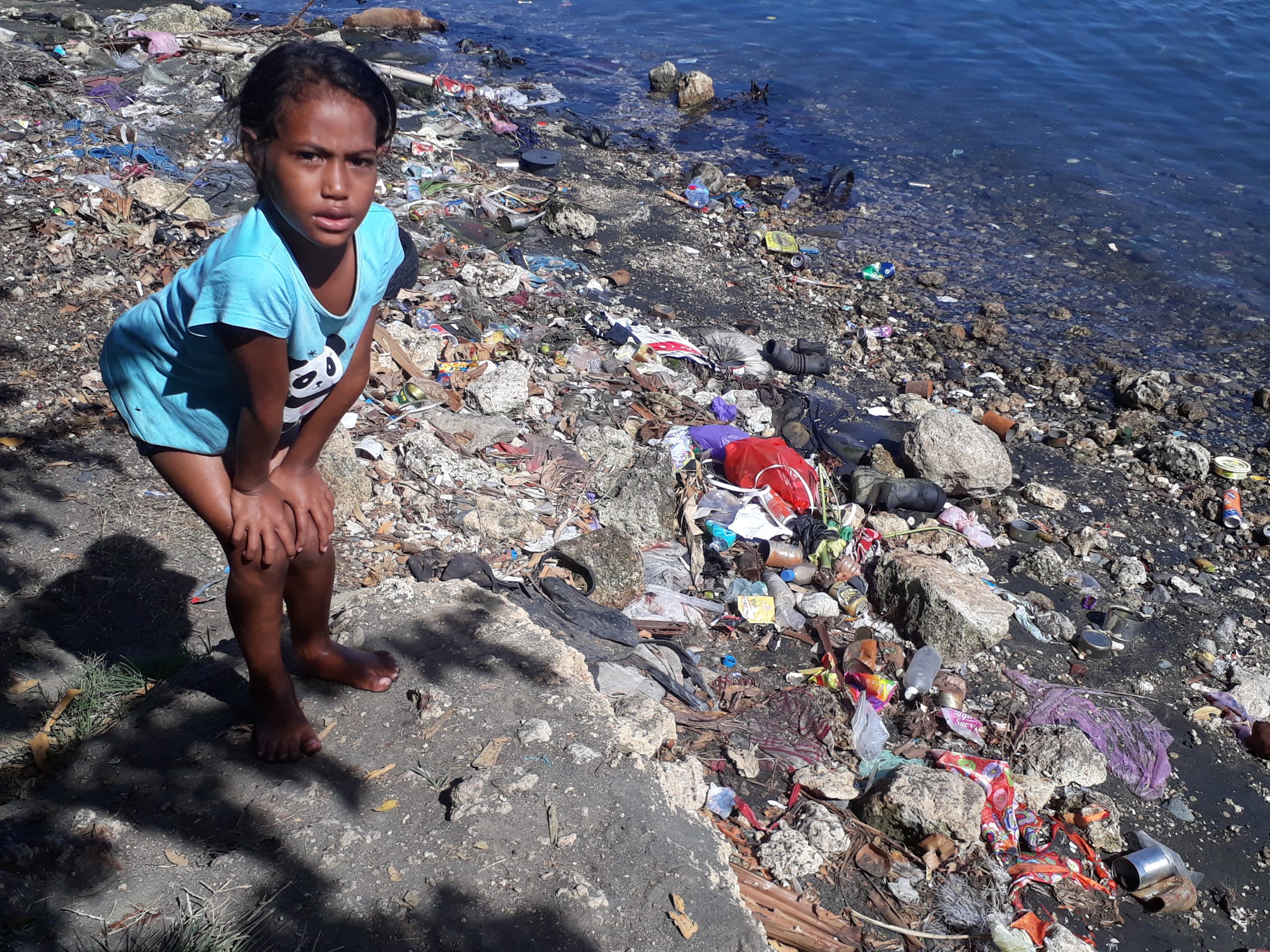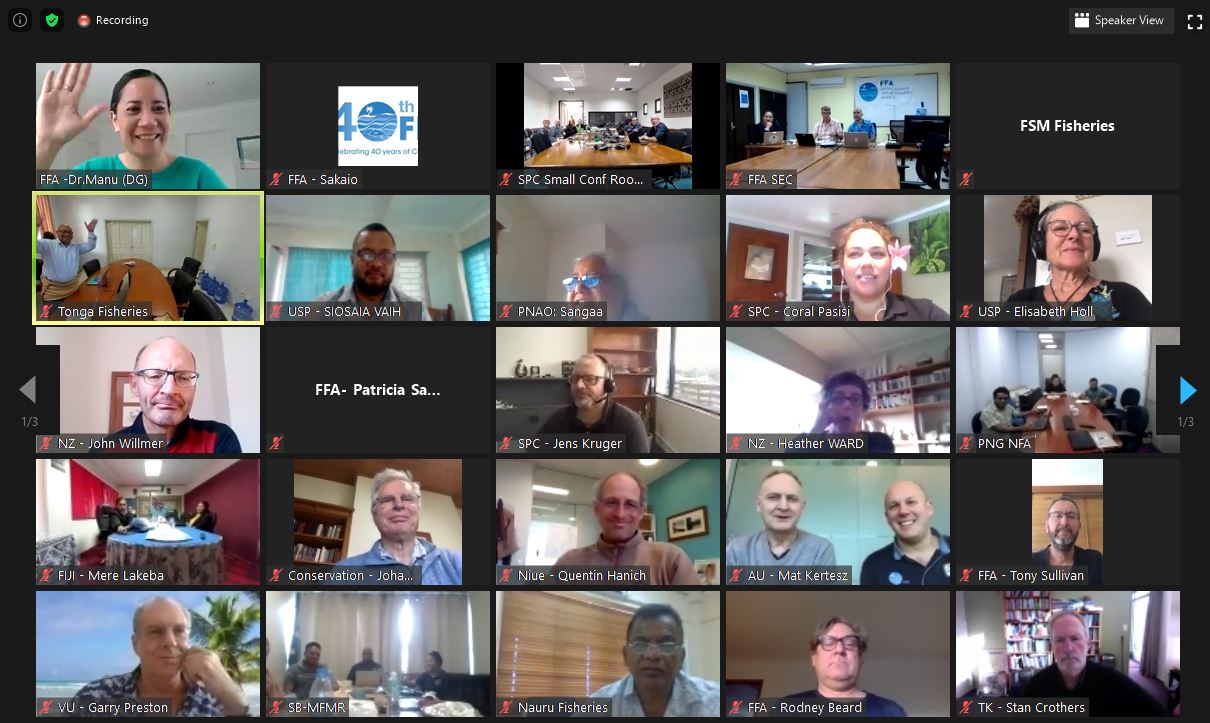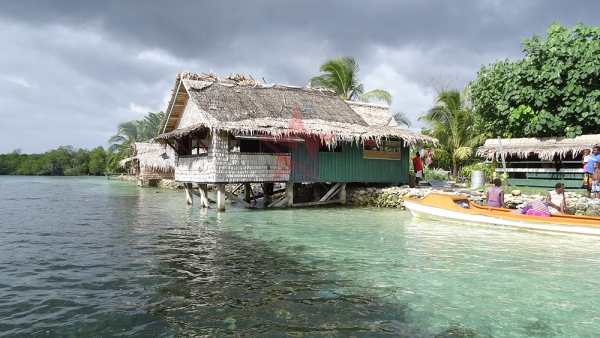In the past, the women of Ontong Java in Malaita Outer Islands used to harvest sea shells not far from the shores to sell for incomes.
Today, the women abandoned their activities because the sea level rise has covered the harvesting areas.
Jenny Asua, who comes from the island confirmed to Island Sun in an interview this week that the women have to paddle far out of the shores to dive the sea shells.
She said this really makes the life difficult for them compare to past years when the sea level was low.
As such, Asua said the women are depending on men and boys to find money through harvesting of bech-de-mers or sea cucumbers.
“Bech-der-mer is the main source of income for the people on the island now.
“With the ban imposed by Ministry of Fisheries, the people are struggling to earn money now,” she said.
Asua said the women have also stopped gardening of taro and kakake (wild taro) because the salt water intruded in their gardens and spoilt the soil.
Ontong Java is part of Malaita Outer Islands constituency which also includes Sikaiana.
According to the statistics in the April 4 elections in 2019, there are more than 300 people living on Pelau, more than 800 plus on Luaniau and 300 plus on Sikaiana.
However, total population of the whole MOI is around 5000 but most of the people left the islands to live in Honiara due to the impact of climate change on their food security.
MOI is part of the Solomon Islands archipelago in the South Pacific.
The Solomon Islands population is expects to reach the 700,000 mark after the Census this year.
The country has a land mass of 28,896 km2 (11,157 sq mi) and the 22nd largest Exclusive Economic Zone of 1,589,477 km2 (613,701 sq mi).
However, the oceans are turning against the low lying islands in the Solomons which are now vulnerable to climate change.
Fr Nigel Kelaepa, Mission Secretary of Anglican Church of Melanesia, said climate change is real for his people because it affects the economy, social and spiritual aspect of the island.
He said food security is an issue on the island because crops don’t grow well because the salt water has destroyed the swamps on the island.
“Our people depend on foods coming from Honiara and shops.
“Now ships are not frequenting the island because the bech-de-mer ban, so the people are struggling to get money,” he said.
Fr Kelaepa said they cannot engage in fishing as well because you need freezers and blocks to keep them and transport to Honiara.
On the social front, Fr Kelaepa said due to the population increase on the island, there is also rise of land dispute among families because they compete for space to plant their food.
He said the communal system practised in the past has slowly eroded as families resort to individual lifestyle as a means of survival.
“Families don’t share food with close relatives now,” he said.
Fr Kelaepa said there are also rise of criminal activities among youths, marriage breakdown among couples and underage marriage on the island.
He said youths are seen as bread winners because they get money from diving bech-der-mers.
“Some families allow their girls to marry the boys as means of survival because they can support them through earning money through diving bech-de-mers,” he said.
On the spiritual front, Fr Kelaepa said on Sundays, only old people and children attend the church, while youths stay away.
Since 2010, Anglican Church of Melanesia and Secretariat of the Pacific Regional Environment Programme (SPREP) have initiated food security projects on Ontong Java because crops like kakake and taro were affected by the salt water that intruded in their gardens.
The project under SPREP was called the Pacific Adaptation to Climate Change (PACC) which involved the Ministry of Agriculture and Livestock.
However, Fr Kelaepa said the food security project by SPREP and ACOM did not work out on the island because the crops did not grow well on land.
He said it is still the fear of the people on the loss of garden crops that will affect their local diets.
Out spoken activist, Lawrence Makili said the Atolls have been used as marketing tool by the national government in international forums for many years now.
Makili said there needs to be autonomy for the Atolls to negotiate with Government and international donors on addressing climate change affecting his people.
Pastor Geoffrey Alacky, said a non-charitably group calls Alliance of Vulnerable Islands Across our Nation is formed to negotiate with Government and donors on climate change issues affecting them.
He said the group is expected to launch its constitution soon.
However, Malaita Premier Daniel Suidani said climate change is a big issue that the national government can handle it because it will involve relocation of people to another land.
Suidani said the province is currently negotiating with landowners to relocate people living on vulnerable islands to mainland.
“For example, the people of Kwai and Ngongosila have relatives living on mainland.
“We can negotiate with them for the people on the island to move inland,” he said.
Suidani said the people of Fanalei and Walande have already moved in land in South Malaita.
For the people of MOI, Suidani said the Province is still to find land for them.
Director of Climate Change in the Ministry of Environment, Climate Change, Disaster Management and Meteorology, Hudson Kauhiona said climate change on the Atolls is very complex because it involves land issue when it comes to relocation.
Kauhiona said currently, there is no specific policy or strategy to deal with climate change on the Atolls.
However, he said past governments and current government have allocated $1.5 million for the Low Carbon Emission Programme and Solomon Islands Climate Action Programme in the national budget.
As part of SICAP project, Kauhiona said a team from his ministry will travel to Sikaiana this month to carry out an assessment on the situation on ground.
He said if there is an immediate help the people needs, the team can provide the assistance on the spot.
Kauhiona believes one option the government can take as part of relocation is to build a second home in urban centres that are closer to schools, health care and employments for relocation.
As part of collecting data on sea level rise, ACOM with the help of University of New South Wales in Australia and University of Southampton in United Kingdom commenced a project on environment and climate change on four sites in Honiara.
The four sites are Selwyn, Red Beach on Guadalcanal and Walande and Fanalei on South Malaita.
Fr Kelaepa said under the projects, poles are placed on the four sites to collect the rise of the seas.
“The data collected can be shared to the government,” he said.
As part of adaptation, he said the church plans to plant self-resilient crops on the atolls like bed fruits, Pacific Yams and coconut that grow at low level.
He said this project is to address the food security crisis on the islands.
Solomon Islands government has presented the country’s case of climate change in regional meetings and international meetings like the United Nations Climate Change Conference (UNCCC), International Conference on Climate Change in past until today.
As a Small Islands Developing State (SIDS), Solomon Islands is part of the Association of Small Islands States (AOSIS), which includes countries in the Pacific and Caribbean.
The future of Solomon Islands and members of AOSIS look bright if they see the global average temperature rises are limited to well below 1.5C; and that parties must reduce emissions by 45% below 1990 levels by 2020, and by 95% come 2050.
This should be complemented with adequate support for capacity building, technology transfer and a comprehensive, equitable and robust outcome.




